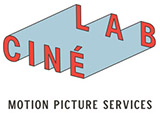Conrad L. Hall
Which of these films has the best cinematography?
145 members have voted
-
1. Which of these films has the best cinematography?
-
Morituri (1965)0
-
Professionals, The (1966)2
-
In Cold Blood (1967)12
-
Butch Cassidy and the Sundance Kid (1969)7
-
Day of the Locust, The (1975)6
-
Tequila Sunrise (1988)2
-
Searching for Bobby Fischer (1993)9
-
Civil Action, A (1998)1
-
American Beauty (1999)24
-
Road to Perdition (2002)75
-












Recommended Posts
Create an account or sign in to comment
You need to be a member in order to leave a comment
Create an account
Sign up for a new account in our community. It's easy!
Register a new accountSign in
Already have an account? Sign in here.
Sign In Now